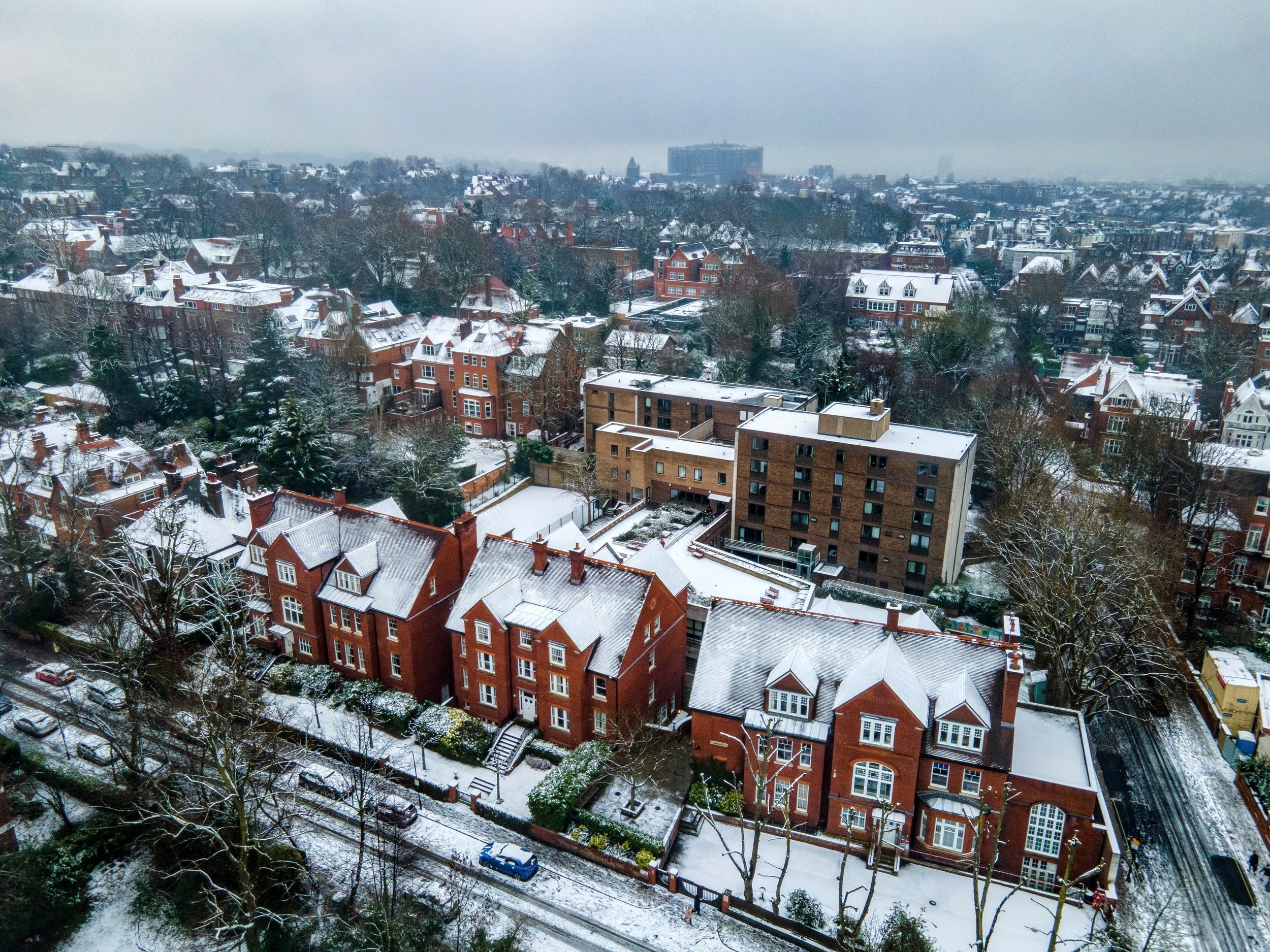About
In 2025 we will celebrate 75 years of offering the full college experience to more than six thousand students from the different London universities. Netherhall House distinguishes itself by its academic and familial environment in London’s quintessentially English Hampstead Village.
Netherhall House is a fully catered residential college for male students in London. Here, we seek to offer an academic, cultural and social environment where students can mature in all aspects of their capacities.
Netherhall seeks to attract students who wish to pursue their studies to the best of their ability and at the same time participate in the family life of the house, making their stay here as much a home for others as for themselves.
-
Netherhall House is a residential college for male students, situated in Hampstead, NW3, and well-connected by public transport to the colleges and institutions of higher education in London.
Academic, intellectual, cultural and personal development are fundamental to purpose of the house, offering a library and study and seminar rooms, along with regular guest speakers throughout the first and second terms, reading groups, and the annual new year conference on science, philosophy and communication.
A regular timetable for meals and get togethers help forge the stable family life of the house, which is considered essential to students’ personal growth. The house was founded with and upholds a Catholic ethos, and expects all who come to live at Netherhall to do so in accord with this ethos, striving to behave in a dignified, responsible way.
Trips take place monthly, providing students an opportunity to see further afield from London, visiting Seven Sisters, Windsor and Eton, Salisbury, New Forest, Land’s End, and other notable places. Smaller, more frequent outreach activities complement the trips, with visits into London to spend time in conversation with the homeless, and going to the local prison.
The atmosphere in the house relies upon the responsibility and respect for personal freedom of each resident. An applicant is offered a place on the understanding that he will by his positive outlook seek to maintain the high standards and family tone which have marked Netherhall House since 1952.
-
Netherhall House first opened its doors in 1952, promoted by some of the early members of Opus Dei in Great Britain with friends and colleagues who were not necessarily Catholics or Christian. From the very beginning, it sought to be a home from home for all the students who chose it as their residence during their university years in London.
It was already the intention, during those early years, that Netherhall House should be an international residential college, providing a unique environment in which all students, whether from home or overseas, could sample the benefits of friendship and international co-operation amongst people of all nations, cultures and religions. The directors of the college worked hard to make this happen, and, as the popularity of Netherhall House grew, they started to lay plans for an expansion which finally came in 1965 with construction of the new buildings in Nutley Terrace.
These allowed for almost one hundred residents on the site and brand-new facilities for the Lakefield Catering School in Maresfield Gardens. In addition, seminar rooms, an auditorium and an Oratory were constructed. The development was partly funded by a grant from the Foreign and Commonwealth Office, administered by the British Council who were keen to help provide good accommodation. It was formally opened by Queen Elizabeth the Queen Mother in November 1966.
One of the biggest developments in NEA’s history came with the Netherhall 2000 project. Planned a decade ago, built between 1993 and 1995, and completed in several respects for the Millennium, this enabled us to complete Netherhall House in good time for its fiftieth anniversary in 2002. Victorian buildings were replaced with modern houses in the same style. We were able to increase available space by digging downwards to create a lower ground floor and also by building a central area between the new houses and the 1960s block. This once again brought Netherhall House’s capacity (reduced temporarily when the old buildings had to close) to over 100 residents, but this time all in single rooms, some with their own en suite bathroom. Netherhall House remains as popular as ever and is now fully equipped to provide a first-class service well into the new millennium.
-
Opus Dei is an organisation of the Catholic Church which helps ordinary men and women strive for holiness in their ordinary lives, through their work and family life. It was founded in 1928 by St Josemaría Escrivá, who was canonised by Pope John Paul II in 2002.
Members come from all social classes and conditions and include young and old, married and single, male and female, rich and poor, lay people and priests. The majority of members are married and live with their families. All members lead ordinary working lives. Hence, their only common feature is the Catholic faith they share and their desire to strive for holiness in and through daily affairs. St Josemaría often spoke of the greatness of ordinary life, as it is there that people can find God and become holy, by striving to carry out their everyday activities to the best of their ability and for the love of God.
Opus Dei supports its members and others by spiritual formation and guidance helping them to strive for holiness and carry out a Christian apostolate wherever they are. Members of Opus Dei, in collaboration with other people of good will, have set up social and educational undertakings in the countries where they live. These include farming schools, centres for the advancement of women, medical centres, hospitals, youth clubs, students’ residences, secondary schools and universities. In Britain there are centres in London, Oxford, Manchester and Glasgow.
St Josemaría Escrivá personally encouraged the setting up of Netherhall House in the 1950s as a residence for students from all over the world. St Josemaría spent several summers in Britain between 1958 and 1962, and considered London a “crossroads of the world” where different cultures could enrich one another and work together for building a better society.

Since 1952
Meet the Leadership Team
-
Santi Marquez
Director
-
Alex Jordan
Assistant director
-
Diego Artacho
Assistant director
-
Daniel Mulhall
Secretary
-
Fr Paul Hayward
Chaplain

